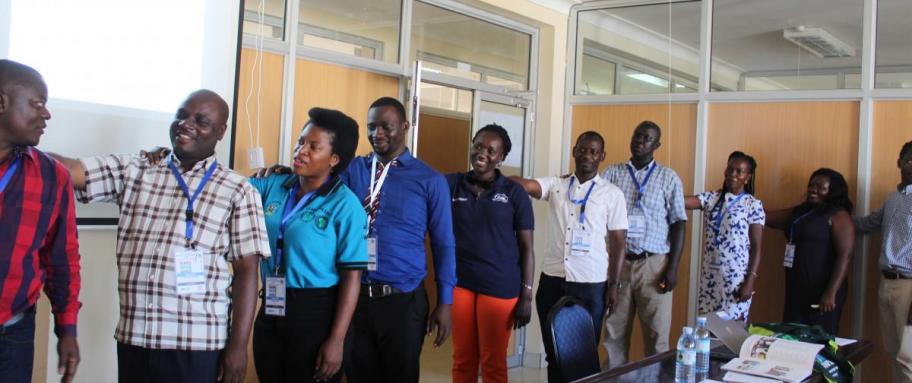
At the Uganda Water and Environment Week 2019, IRC and UWASNET organised a practical skills training session on media and communication. Participants took home several tips.
Published on: 01/04/2019
Water and Environment professionals on March 21st received tips on how to work with the mainstream media to put WASH on the public agenda. This was during an applied training session organised by IRC and UWASNET at the UWEWK2019. The session was facilitated by Gerald Businge, a renowned communication practitioner and trainer in Uganda. Areas covered included: why the media; media relations; tools or ways to engage with the media. Some of the tips shared:
• Journalists see things differently from their sources of information. It is important to articulate your message clearly to avoid distortion.
• Know the difference between public interest and interest of the public.
• Working with individual journalists is good, but always remember that editors have the final word and play the gate keeping role.
• Editorial coverage is not always guaranteed. You have to make your information interesting to the journalists and the general audience.
• Don't just focus on the news. There are other sections or programmes where your message can fit – sports, health, science, education etc.
• Journalists work with deadlines. You need to be fast with the information they ask for.
• Payment is no guarantee for coverage. Sometimes you may pay but miss the slot because of your failure to show up e.g for scheduled programmes like talk shows. Missed schedules are not reversible.
• Get to know the key message from your organisation before you share it with the media. You can't communicate what you don't know.
With insights from the training, the participants resolved to improve media relations in their own organisations. They committed to: develop a database for Water and Environment journalists to work with and write an op-ed piece in the leading newspapers.
Participants also selected the media tools that they wished to apply after the training. They preferred to organise radio talk shows, produce their own articles and audio-visual productions; share tips with journalists; conduct media tours; document and share case studies; organise media dialogue; organise press conferences and issue press releases.